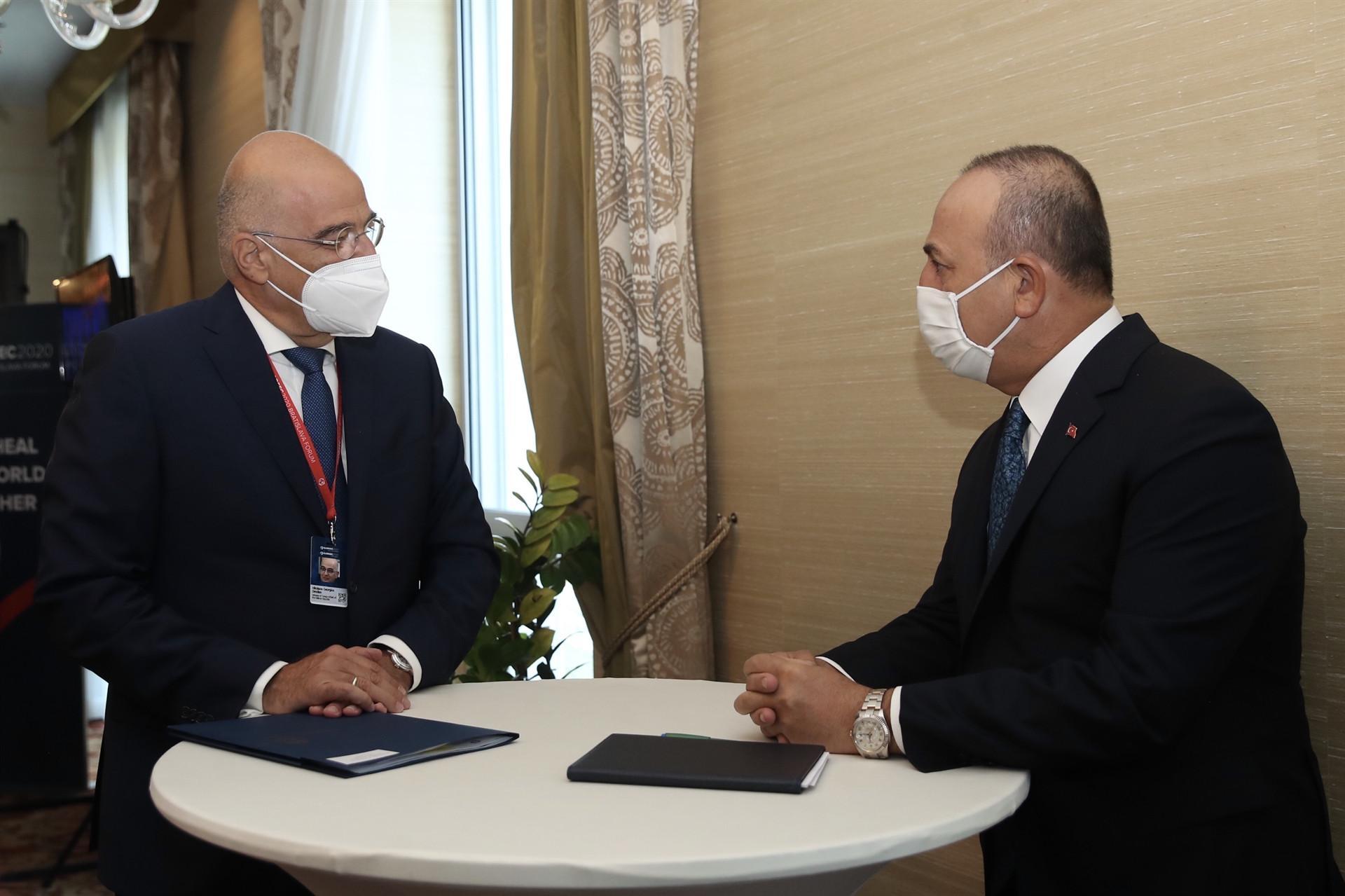Turkish, Greek foreign ministers meet for first time since E Med tensions
ANKARA, BRATISLAVA

The Turkish and Greek foreign ministers met on Oct. 8 on the sidelines of a conference in Slovakia for the first time since tensions erupted over the eastern Mediterranean’s energy rights and agreed to set a date for the start of a new round of exploratory talks and meetings for confidence-building measures between the two.
Foreign Minister Mevlüt Çavuşoğlu said he met with his Greek counterpart Nikos Dendias and noted that Turkey, as the host country, will propose dates for exploratory talks and meetings for confidence-building measures in the coming days.
“I told him [Dendias] that we should continue the dialogue even in the most difficult days,” Çavuşoğlu told reporters in Bratislava.
The meeting was held on the sidelines of a security forum in Slovakia’s capital Bratislava, with video from the Turkish Foreign Ministry showing the pair laughing after greeting each other.
“Dendias conveyed Greece’s opinion on the issue of reopening of the Varosha beachfront in Famagusta of Cyprus, which is under the control of Turkish Cypriots,” Çavuşoğlu said, adding that he emphasized Turkey’s argument on the issue as well.
Varosha had been sealed since 1974 after Turkey’s intervention that year, launched in response to a Greek Cypriot coup seeking to annex the whole island to Greece.
Turkey and Greece have been at loggerheads over territory and undersea energy resources for much of the year, although the two sides agreed last month to hold exploratory talks. Tensions over natural gas rights escalated in August when Turkey sent a seismic survey ship and a small navy flotilla into contested waters near a Greek island close to Turkey’s coast.
Turkey ordered the ship back to port for routine maintenance last month, but not before both sides held military drills, and the European Union threatened sanctions on Ankara. At an event at the forum before their meeting, Çavuşoğlu criticized Greece’s “maximalist claims” in the sea, using maps to show “there is nothing left for Turkey” if Greek demands are accepted.
Çavuşoğlu also repeated Ankara’s consternation over a deal Athens agreed with Cairo in August to set up an exclusive economic zone in the eastern Mediterranean.
The Turkish minister, on the other hand, had a separate meeting with his German counterpart, Heiko Maas, on the sidelines of the conference. Berlin has been playing a mediator role between Ankara and Athens, aiming to calm down the tension.
Earlier this week, NATO Secretary-General Jens Stoltenberg also visited Ankara and Athens to resolve the tensions over energy exploration in the eastern Mediterranean.
Turkey, Greece issue NAVTEXs in Aegean
On the day when the two countries met, the Greek army issued a new NAVTEX, an advisory to sailors, in the Aegean Sea to carry a shooting drill on Oct. 29, Turkey’s National Day. In response, Turkey said it will also hold a shooting drill on Oct. 28 in the Aegean Sea.
According to the sources, the Greek move is an open violation of a set of existing confidence-building measures that prohibit each other from holding military exercises or activities on the national days of each other.
The Turkish and Greek military officials were in talks to reduce the risk of conflict and accidents in the Aegean and Mediterranean under NATO auspices. NATO Secretary-General Jens Stoltenberg had announced the establishment of a 24/7 mechanism between the two sides to ease the tension.
















